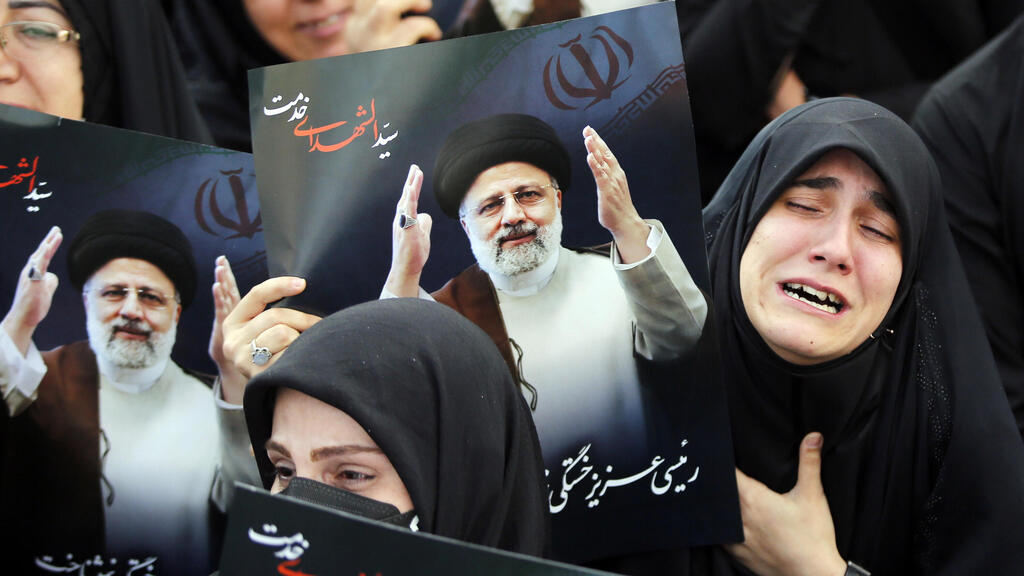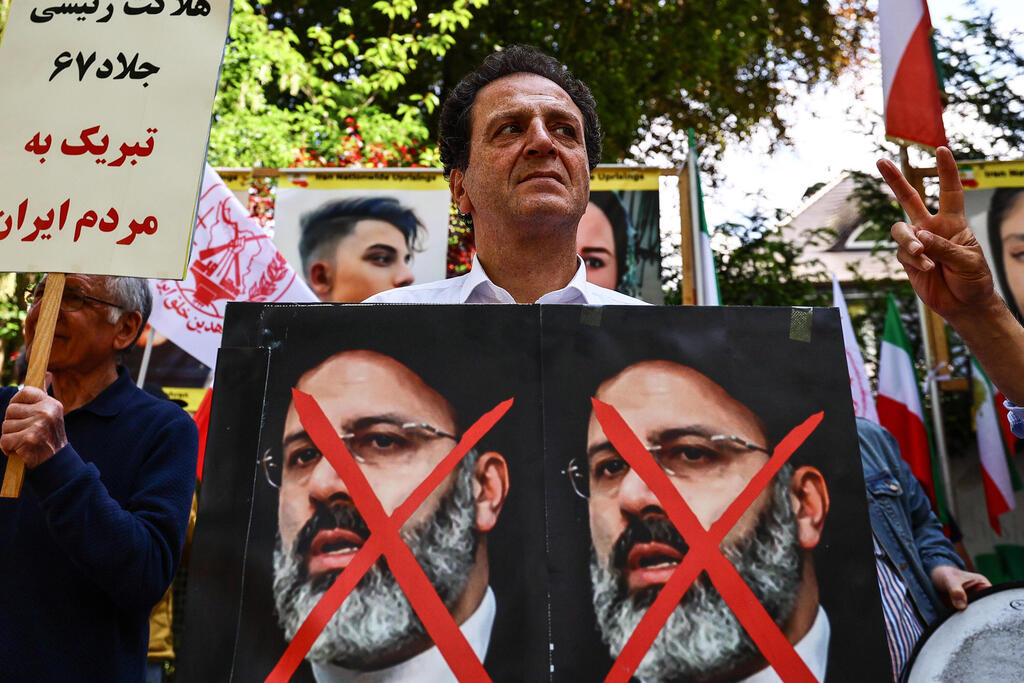Suddenly, the streets of Iran's major cities were filled with dense lines of mourning men. Walking arm in arm with somber expressions, they prayed for the passengers of the helicopter that crashed on its way back from the Azerbaijan border. Images of the four prominent Iranian officials — President Ebrahim Raisi, Foreign Minister Hossein Amir-Abdollahian, the governor of East Azerbaijan from the Iranian side, and the Imam of Tabriz – were projected on giant screens.
According to rumors, Iranian police handpicked the mourning men, and prevented women from joining the funeral processions to avoid potential outbursts of joy.
There is no dispute: Raisi was a hated figure in Iran. The older generation despised and feared him due to his involvement in the mass executions during the Iran-Iraq War and the selection process conducted by his forces among prisoners. Those who pledged loyalty to the brutal regime were temporarily spared, while those who hesitated or made ambiguous statements were sent to face firing squads in prison yards.
This was followed by a second wave of civilian executions labeled as "enemies of the regime," again under Raisi's direct supervision. Despite the harsh testimonies and lawsuits filed against him by human rights organizations, he was appointed head of the judiciary. Last year, a record number of executions were recorded in Iran’s prisons: over 400 men and 60 women. Each execution was personally approved by Raisi.
On Sunday, it was announced that Arvin Nathaniel Ghahremani, a young Jewish man scheduled for execution the following day, received a stay. Jewish human rights organizations had raised funds to send to his mother, though the family of the Iranian man killed in a fight involving Ghahremani had so far refused to accept money from Jews.
Raisi also had a long-standing vendetta against Iranian women. He intensified and enforced stricter hijab laws, reinstated the women of the "morality police" as informers, and sent hundreds of high school girls and prominent women to detention centers. On his personal recommendation, each detainee underwent an "entry stage," involving rape by the guards as part of their initiation into the detention center. In several cases, Raisi was an eyewitness.
Naturally, the pressing question following the confirmed deaths of Raisi and all the helicopter passengers is who will succeed him. This despite the fact that his official role did not touch on Iran’s key issues – such as the Islamic Revolutionary Guard Corps, the Quds Force, and the special force reporting to Supreme Leader Ali Khamenei; these are Iran's real power centers. The Islamic Revolutionary Guard Corps had sidelined Raisi, prompting him to complain to his patron, Khamenei, who responded with indifference. Khamenei, known for maintaining a decentralized power structure, was well aware of Raisi’s unpopularity on the Iranian streets.
However, Raisi's power and authority stemmed from his close relationship with the Supreme Leader. He not only shared Khamenei's extreme political views but also managed to bypass Khamenei's eldest son, Mojtaba, who aspired to succeed his father.
There was a clear division of responsibilities between Raisi and Foreign Minister Abdollahian: Raisi managed internal affairs, while Abdollahian focused on foreign policy, expanding Iran’s international reach. Abdollahian made numerous trips and missions last year to win the Supreme Leader's favor. Interestingly, despite sharing Raisi’s views, including the assertion that "the Zionist entity is Iran’s only enemy," Abdollahian was not widely despised in Iran.
Raisi's death in the helicopter crash is primarily a moral blow that will pass quickly. A replacement will be found, and no genuine tears will be shed at his funeral once his body arrives in Tehran. The real intrigue lies in whether Khamenei will seek a carbon copy of Raisi – a conservative unhesitant in issuing death orders – or if, against all odds, this event will prompt him to consider a reformist capable of engaging with the frustrated youth of the conservative republic.



